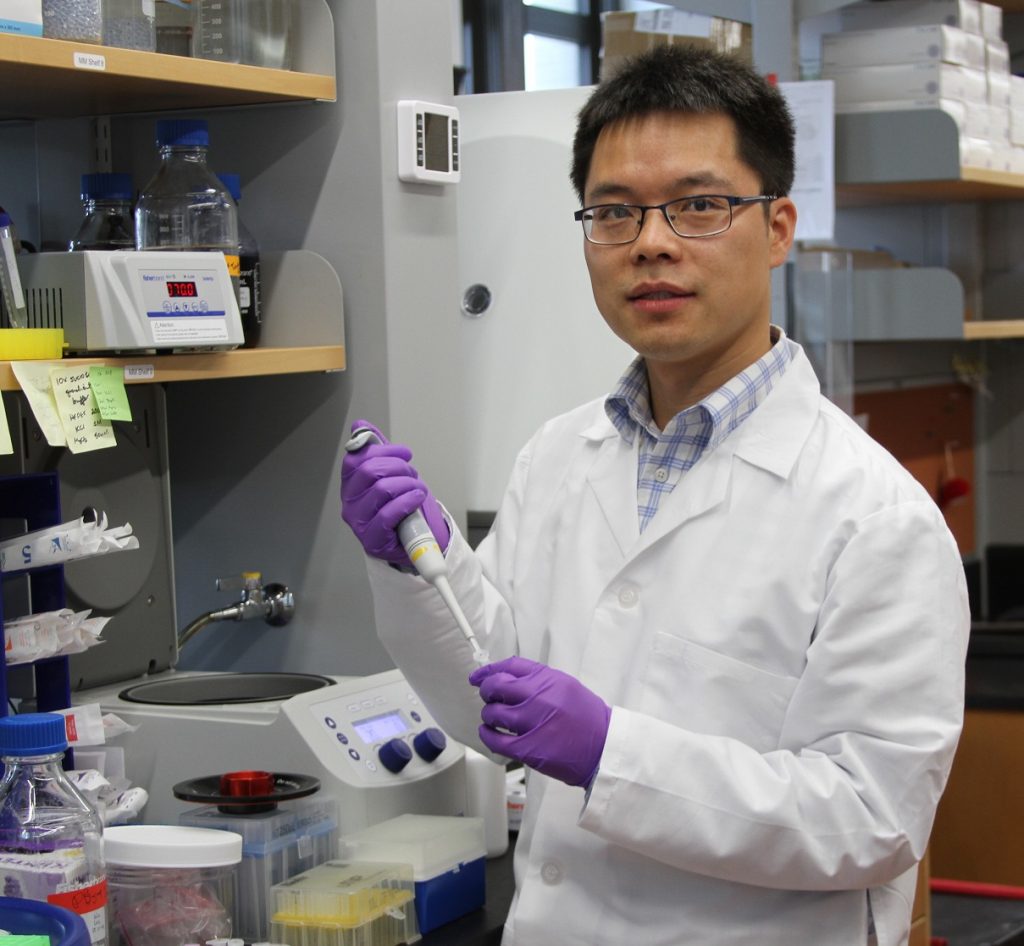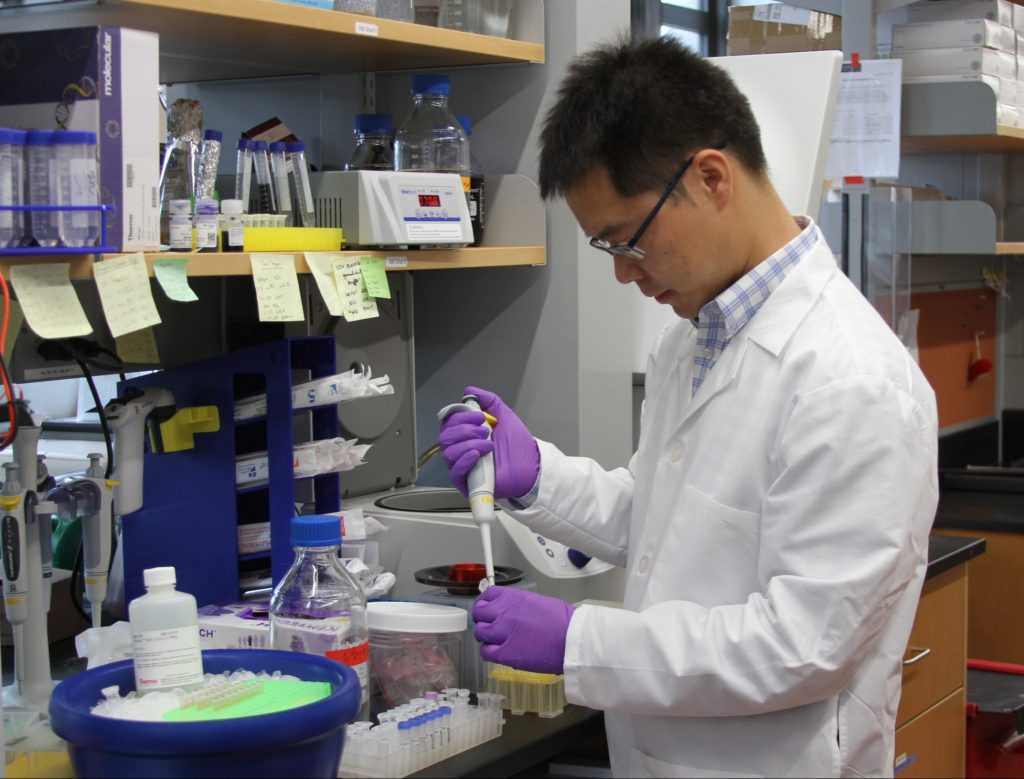Xuebing Wu, PhD ‹ Back To 2021 Winners
2021 Winners
Assistant Professor
Medicine; Systems Biology
Columbia University Irving Medical Center
Vision
Cancer is caused by mutations in the genome. While those mutations are in principle the most specific drug target and can be routinely identified by DNA sequencing for each patient, we do not have a way to kill cancer cells by directly targeting those mutations. Instead, current cancer therapies target the downstream effects of those driver mutations, which are less specific and highly variable across patients. Consequently, many patients suffer from toxic side effect, have no response to treatments, and eventually many tumors will become resistant. Our vision is to develop a technology for mutation-specific elimination of tumor cells, by integrating highly programmable CRISPR systems with advanced machine learning.
Xuebing Wu, PhD is an Assistant Professor in the Department of Medicine and the Department of Systems Biology at Columbia University Irving Medical Center. Dr. Wu received a B.S. and M.S. in Control Science and Engineering from Tsinghua University, Beijing and a PhD in Computational and Systems Biology from MIT, working with Phillip Sharp and Christopher Burge. As a Helen Hay Whitney Fellow, he continued postdoctoral work on functional genomics of RNA structures with David Bartel at Whitehead Institute/MIT. Research in the Wu laboratory integrates CRISPR, genomics, and machine learning to decode and target RNA in human health and disease. Dr. Wu has received a number of other distinctions including The RNA Society/Scaringe Young Scientist Award, Pew-Stewart Scholars Award, Paul Marks Scholars Award, and NIH Director’s New Innovator Award.
Targeting tumors with CRISPR/Cas13-based sequence-specific cell knockout
 Selective killing of cancer cells without affecting normal cells is the goal of cancer treatment. Cancer cells differ from normal cells by DNA mutations that drive cancer initiation. Although those driver mutations can be routinely identified by cancer genome sequencing, there is a lack of therapeutic platforms to directly target those mutations with high precision. Here, we propose to develop such a platform and apply it to treat pancreatic cancer, the most aggressive and lethal of the major cancers.
Selective killing of cancer cells without affecting normal cells is the goal of cancer treatment. Cancer cells differ from normal cells by DNA mutations that drive cancer initiation. Although those driver mutations can be routinely identified by cancer genome sequencing, there is a lack of therapeutic platforms to directly target those mutations with high precision. Here, we propose to develop such a platform and apply it to treat pancreatic cancer, the most aggressive and lethal of the major cancers.
“Our high-risk approach for targeting cancer is too unorthodox to receive conventional funding. The Pershing Square Sohn Prize will allow us to develop a potentially transformative technology that turns personalized cancer therapy into reality.”
Our platform is based on a new CRISPR system that can be easily programmed to recognize specific DNA mutations and trigger the destruction of cancer cells. If successful, our platform will accelerate the development of precision therapies for many types of cancer.
“Innovation is natural when you cross fields.”
